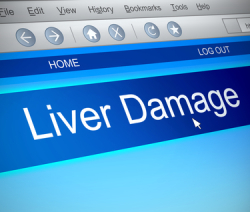Top Class Actions’s website and social media posts use affiliate links. If you make a purchase using such links, we may receive a commission, but it will not result in any additional charges to you. Please review our Affiliate Link Disclosure for more information.

This quinolone side effect claim is highly alarming to medical experts who have prescribed the drugs for a number of years. According to WebMD, approximately 23 million patients received prescriptions for Avelox, Levaquin, and Cipro in 2011. Sadly, this news comes too late for numerous patients who have already reported developing severe liver damage, or liver failure in some cases.
Each of the drugs mentioned above belong to the quinolone drug family, and have also been implicated in instances of quinolone liver damage. There have been several quinolone liver damage studies supporting this correlations, with the U.S. Food and Drug Administration (FDA) warning patients against using quinolone drugs after the agency received a large number of liver damage injury reports. One of the studies was conducted in August 2012 issue of the Canadian Medical Association Journal, with data collected from several different hospitals in Ontario. Each of these patients had suffered liver damage after taking antibiotics, even though these patients had no history of liver complications or had not contracted liver damage at least nine years proper to taking the antibiotics.
There were 144 subjects observed in this quinolone liver damage study. All of these patients were diagnosed with liver damage within 30 days of starting the antibiotics. Approximately 60 percent of the patients developed liver disease and later died from this condition; a significant number of the patients affected by liver damage were quinolone subjects. While not all of the antibiotics observed in the study were quinolones, the conducting researchers concluded that the patients who were prescribed with Avelox and Levaquin were twice as likely to develop acute liver failure when compared to patients who took other prescriptions.
Other studies have been conducted with similar results, spreading fear and anxiety in the medical community over whether or not to prescribe quinolone antibiotics. To make matters worse, the FDA stated that quinolones could also cause the severe skin reactions Stevens Johnson Syndrome (SJS) and Toxic Epidermal Necrolysis (TEN), which would make the patient’s liver even more susceptible to damage. It is important to note that liver damage has not been conclusively proven to cause liver toxicity in patients, and therefore, a number of quinolones remain popular among patients.
Overview of Quinolone Liver Damage
Because the number of injury reports have not been large enough to be considered a common side effect, the FDA has not taken any action to pull quinolones from the market. However, this has not stopped the FDA from advising medical professionals to prescribe different antibiotics and recommending against prescribing quinolones to patients who may be vulnerable to liver damage.
The quinolone antibiotic drugs currently available in the United States include: Cipro, Levaquin, Factive, Avelox, Noroxin, and Ocuflox. All of these prescription drugs are oral medications, which were originally thought to have a low side effect rate. However, several quinolones were withdrawn from the United States soon after they were introduced due to a large number of liver failure reports. These recalled quinolones include: temafloxacin, recalled in 1992; gatifloxaxin, recalled in 2006; and trovafloxacin, recalled in 1999. According to medical experts, the injury rate of quinolone liver damage has been estimated to be about one out of 100,000, with symptoms beginning between one to four weeks of starting the medication.
For the quinolone drugs still available on the market, patients from across the country are filing legal action against the drugs’ manufacturers, claiming various product liability allegations. Currently, there are more than 2,000 quinolone lawsuits that have been filed by former quinolone patients who have suffered liver toxicity or liver failure side effects.
Do YOU have a legal claim? Fill out the form on this page now for a free, immediate, and confidential case evaluation. The attorneys who work with Top Class Actions will contact you if you qualify to let you know if an individual lawsuit or class action lawsuit is best for you. [In general, quinolone lawsuits are filed individually by each plaintiff and are not class actions.] Hurry — statutes of limitations may apply.
ATTORNEY ADVERTISING
Top Class Actions is a Proud Member of the American Bar Association
LEGAL INFORMATION IS NOT LEGAL ADVICE
Top Class Actions Legal Statement
©2008 – 2024 Top Class Actions® LLC
Various Trademarks held by their respective owners
This website is not intended for viewing or usage by European Union citizens.
Get Help – It’s Free
Join a Free Quinolone Class Action Lawsuit Investigation
If you or someone you know took Cipro, Levaquin, Avelox or another quinolone antibiotic and were diagnosed with liver failure, Stevens Johnson Syndrome (SJS) or toxic epidermal necrolysis (TEN), you may have a legal claim. See if you qualify by submitting your information below for a free and confidential case review.
An attorney will contact you if you qualify to discuss the details of your potential case at no charge to you.
Oops! We could not locate your form.












